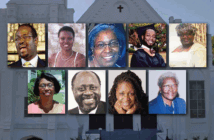In a local church, feedback will happen — whether you ask for it or not! But the challenge is to collect feedback in a systematic and constructive way when so much spontaneous feedback is qualitative and subjective.
Feedback is the lifeblood of creative, responsive church leadership. So it is important for leaders to model the behavior of giving and receiving feedback.
Feedback is essential to evaluating ministry and discerning opportunities for improvement. People are more likely to grow in faith and discipleship when they feel they are being heard and making an impact. And, in this day of increasingly interactive communication, feedback can foster a dialogue that will improve preaching. Feedback is the lifeblood of creative, responsive church leadership. So it is important for leaders to model the behavior of giving and receiving feedback.
At Grace Church, we employed a very simple method of gathering feedback. The goals were to gather and interpret as much input as possible, to engage a large number of people in meaningful conversation on subjects that matter to them, and to create a culture of feedback in which persons knew they were heard.
At that point, I was new to the church so the questions were designed to help me understand who they were, where they have been, and what God was calling them to become. The questions looked something like this:
- What is going well at Grace Church?
- What is not going well at Grace Church?
- What is a barrier that could be removed to improve your sense of participation and success in the life of Grace Church?
- What role in the life of the church would you like to take on?
- What are the needs in our congregation and communities that would point toward new opportunities for Grace Church’s ministry?
The next step was to ask these questions of as many people as possible — church members and leaders, staff and colleagues, predecessors and community members. Everyone in the congregation was given several opportunities to answer the questions — through one-on-one conversations, in classes and small groups, or via an email survey or a bulletin insert. The questions were modified for only two audiences: young people and community members. For two months, if you had a meeting with me, you were asked the five questions. I knew we had reached our goal when the youth were able to recite the questions to me from memory.
According to Joseph R. Folkman (The Power of Feedback, John Wiley and Sons, 2006), there are three key aspects to a feedback process:
- accepting feedback,
- constructively analyzing feedback, and
- using feedback in decision-making.
As we collected responses to our five questions, the church administrator collated and coded them. And clear themes emerged. The congregation appreciated its youth and music ministries, was hopeful about its future, showed ambivalence around its increasing diversity, needed an improved sound system in the sanctuary, wanted to improve its care for its older members, and saw room for improvement in adult spiritual formation and hands-on missions.
The next critical step was relating these themes back to the congregation. Again, we used multiple avenues. The newsletter, committee meetings, staff meetings, sermons, and church conference reports all shared what we learned from one another. Plans to address what was learned began to take shape in conversations with the key stakeholders.
After nearly two years at Grace Church, I still hear people speak of the five questions, and many helpful conversations have followed from the work we began with them. Going forward, I am currently formulating the next “five questions,” so that our conversation, learning and growth will continue. Of course, in your church the questions might be different, especially if your church is facing particular challenges. But asking “five questions” and doing the work to create a feedback loop is a simple and achievable approach to this process.
Related Resources:
- Right Questions for Leaders eBook by Lovett H. Weems, Jr.
- Feedback without the Pain by Lovett H. Weems, Jr.




